Bourke is a town in the north-west of New South Wales. The administrative centre and largest town in
Bourke Shire,
Bourke is approximately 800 kilometres North-West of
Sydney, on the south bank of the
Darling River.
The first white explorer to encounter the river was Charles Sturt in 1828 who named it after New South Wales Governor Ralph Darling. Having struck the region during an intense drought and a low river, Sturt dismissed the area as largely uninhabitable and short of any features necessary for establishing renewable industry on the land.
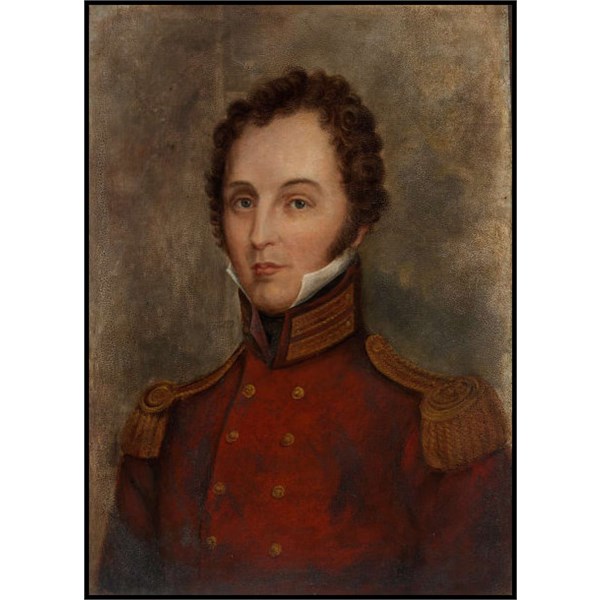
Governor Richard Bourke
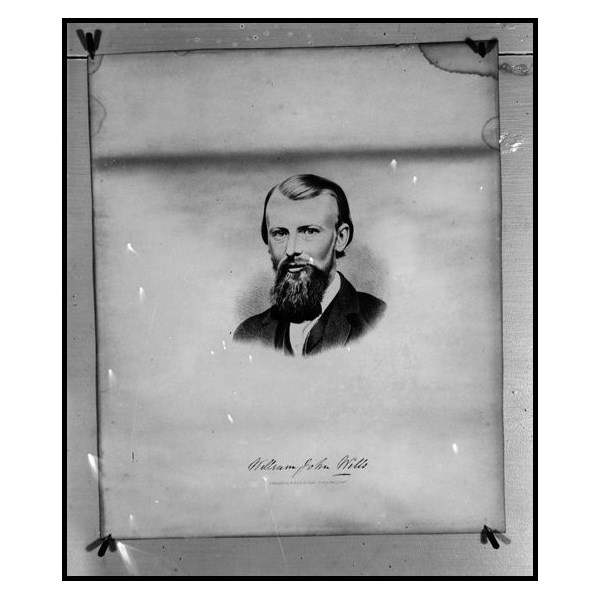
sketch of William John Wills of the Bourke and Wills Expedition
It was not until the mid-1800s following a visit by colonial surveyor and explorer Sir Thomas
Mitchell in 1835 that settlement of the area began. Following tensions with the local people
Mitchell built a small stockade to protect his men and named it Fort
Bourke after then Governor Richard
Bourke. This first crude structure became the foundation for a fledgling community with a small number of agricultural and livestock farms established in the region shortly afterwards. The area started to flourish when its location on the
Darling River had it recognised as a key trade centre, linking the nearby outback agricultural industries with the east coast trade routes via the
Darling River.
Bourke was surveyed for a town in 1869 and soon established itself as the outback trade hub of New South Wales with several transportation industries setting up branches in the town.
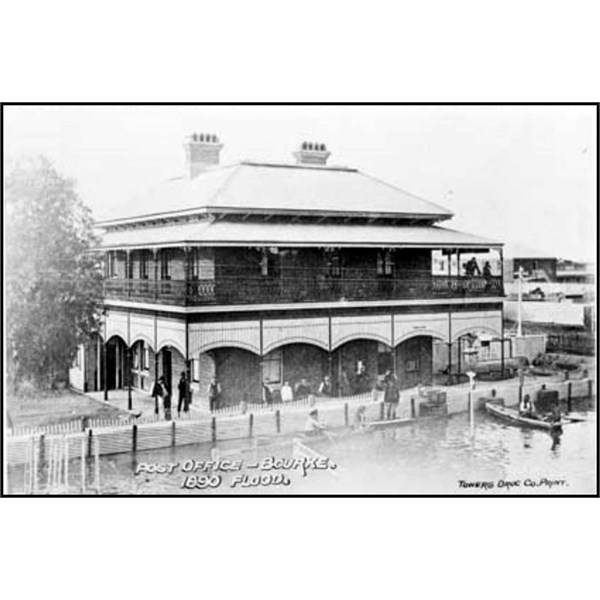
Bourke Post Office in flood 1890
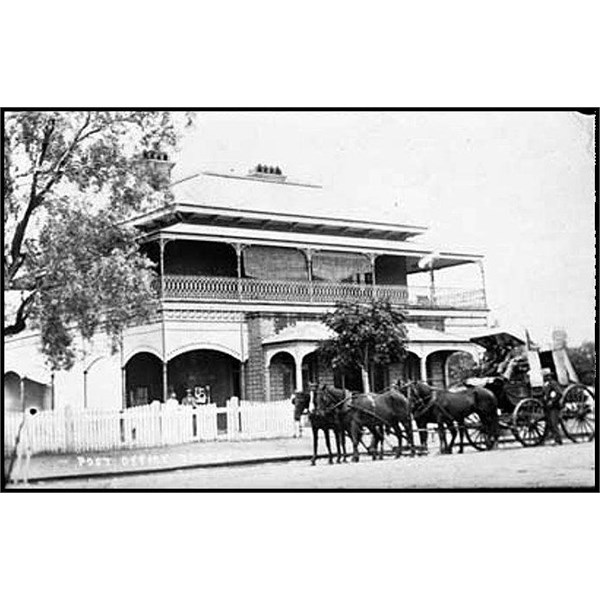
Bourke post office with mail coach in front, early 1900s
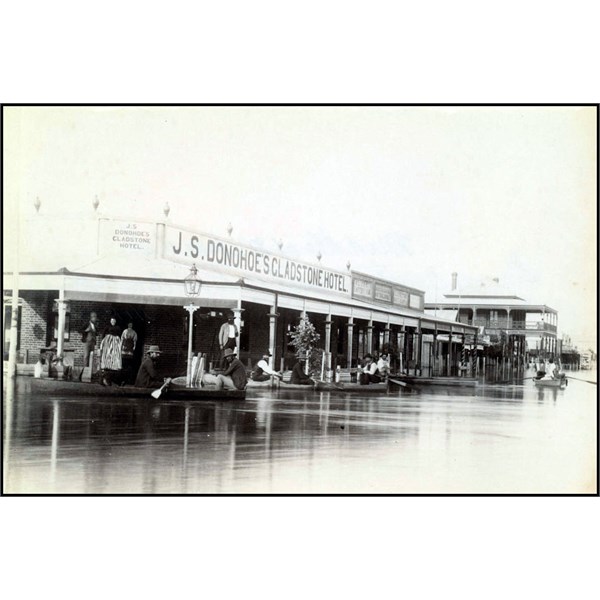
Mitchell Street, Bourke, in flood that occurred in 1890
By the 1880s
Bourke would host a Cobb & Co. Coach Terminus, several paddle boat companies running the Darling and a
bridge crossing the river that would allow for road transportation into the town and by 1885
Bourke would be accessible by rail, confirming its position as a major inland transport hub. Like many outback Australian townships,
Bourke would come to rely on camels for overland transport, and the area supported a large Afghan community that had been imported to drive the teams of camels. A small Afghan mosque that dates back to the 1900s can be found within
Bourke cemetery.
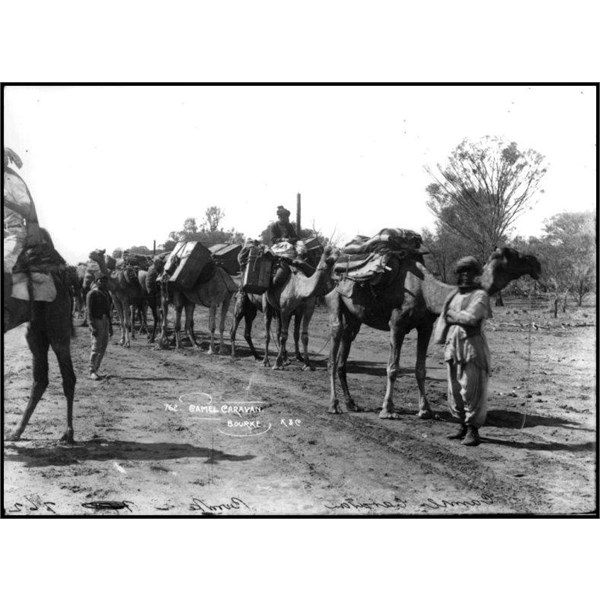
A Camel caravan in Bourke circa 1900
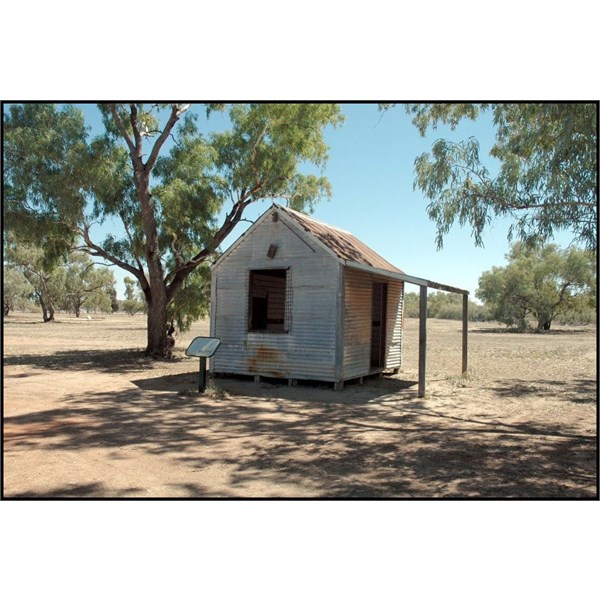
Mosque in Bourke cemetery
As trade moved away from river transport routes,
Bourke's hold on the inland trade industry began to relax. Whilst no longer considered a trade centre,
Bourke serves instead as a key service centre for the states north western regions. In this semi-arid outback landscape, sheep farming along with some small irrigated cotton crops comprise the primary industry in the area today.
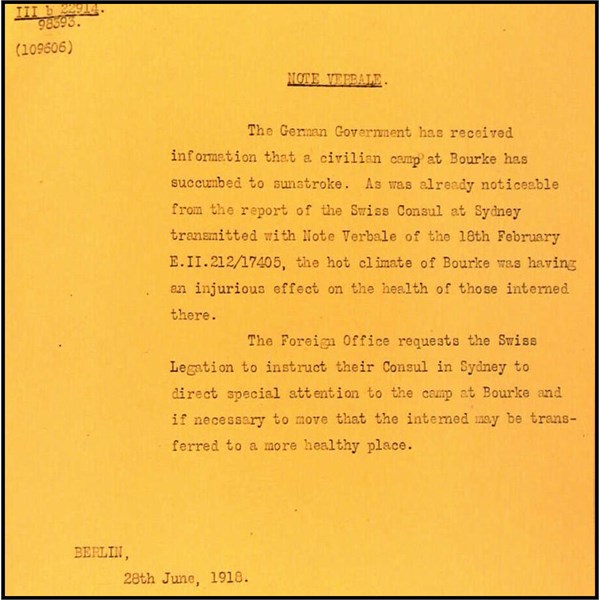
Prisoner of War Camp 1918
German families deported from the Straits Settlements (now Singapore and Malaysia), Ceylon (now Sri Lanka), Fiji and Hong Kong, as
well as some local internees lived at
Bourke in far western New South Wales. They were not housed in enclosed concentration camps like Holsworthy. Those who could afford it rented small cottages in town, and others were accommodated in the gaol and later in a disused hotel.
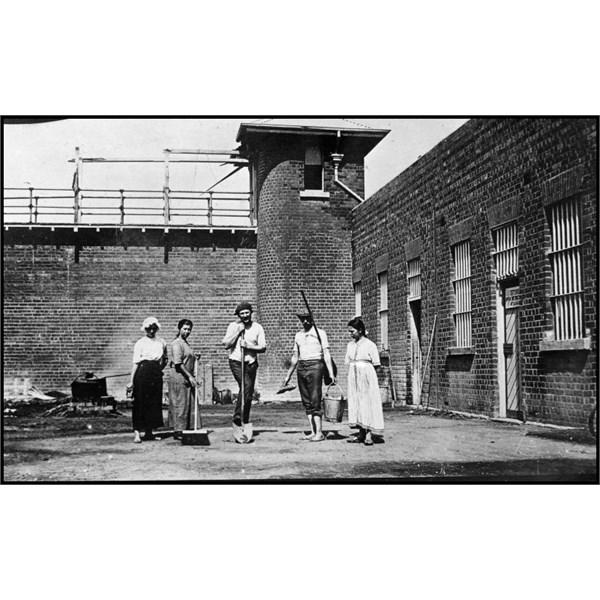
Internees in the old Bourke Gaol, c.1915
The families had the freedom to move around the town during the day, but there was little to do there. The small number of internees meant that
camp cultural programs and sporting activities did not develop as they did at Holsworthy, Trial Bay and Berrima.
In 1918, the internees were moved from
Bourke to the newly-built
camp at Molonglo.
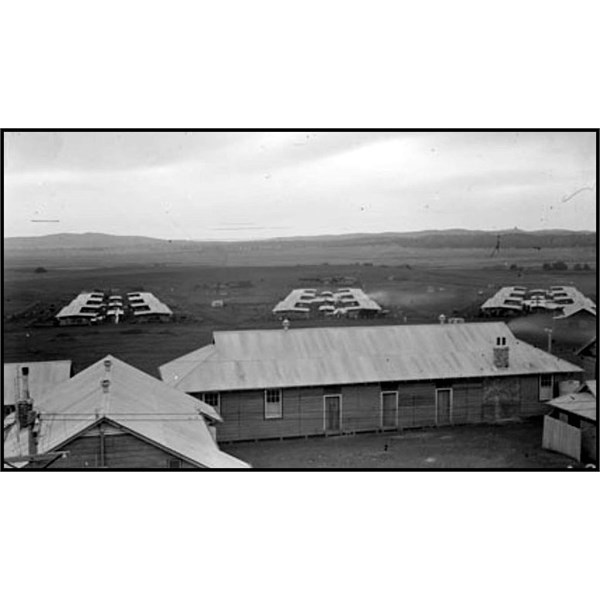
Molonglo internment camp
The Molonglo
camp was located outside of
Canberra, in what was then called the Federal Capital Territory (now Australian Capital Territory). It was established late in the war for the arrival of 5000 German and Austrian men, women and children from China and east Africa. However these internees never arrived, so the German families interned at
Bourke, New South Wales, were transferred to family accommodation there. The families of local men interned at Holsworthy petitioned the Commonwealth Government for accommodation there too, but the Government knocked back the petition because the Department felt they dind not have financial and material resources available for the foreign deportees.
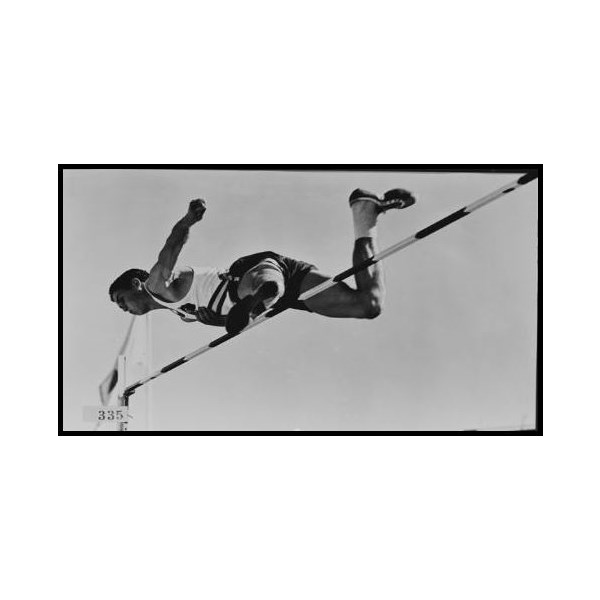
Percy Hobson clears the bar at 6ft 11in
In 1962 local high jumper Percy Hobson became the first Aboriginal athlete to win a Commonwealth Games gold medal for Australia in
Perth. The 5 ft. 10 in. tall Hobson jumped 13 inches above his height to win the event with a leap of 6 ft. 11 inches. While Hobson was urged by athletics administrators ‘not to broadcast his ancestry’, he was celebrated on his return to
Bourke and greeted by a brass band playing "Hail the Conquering Hero".